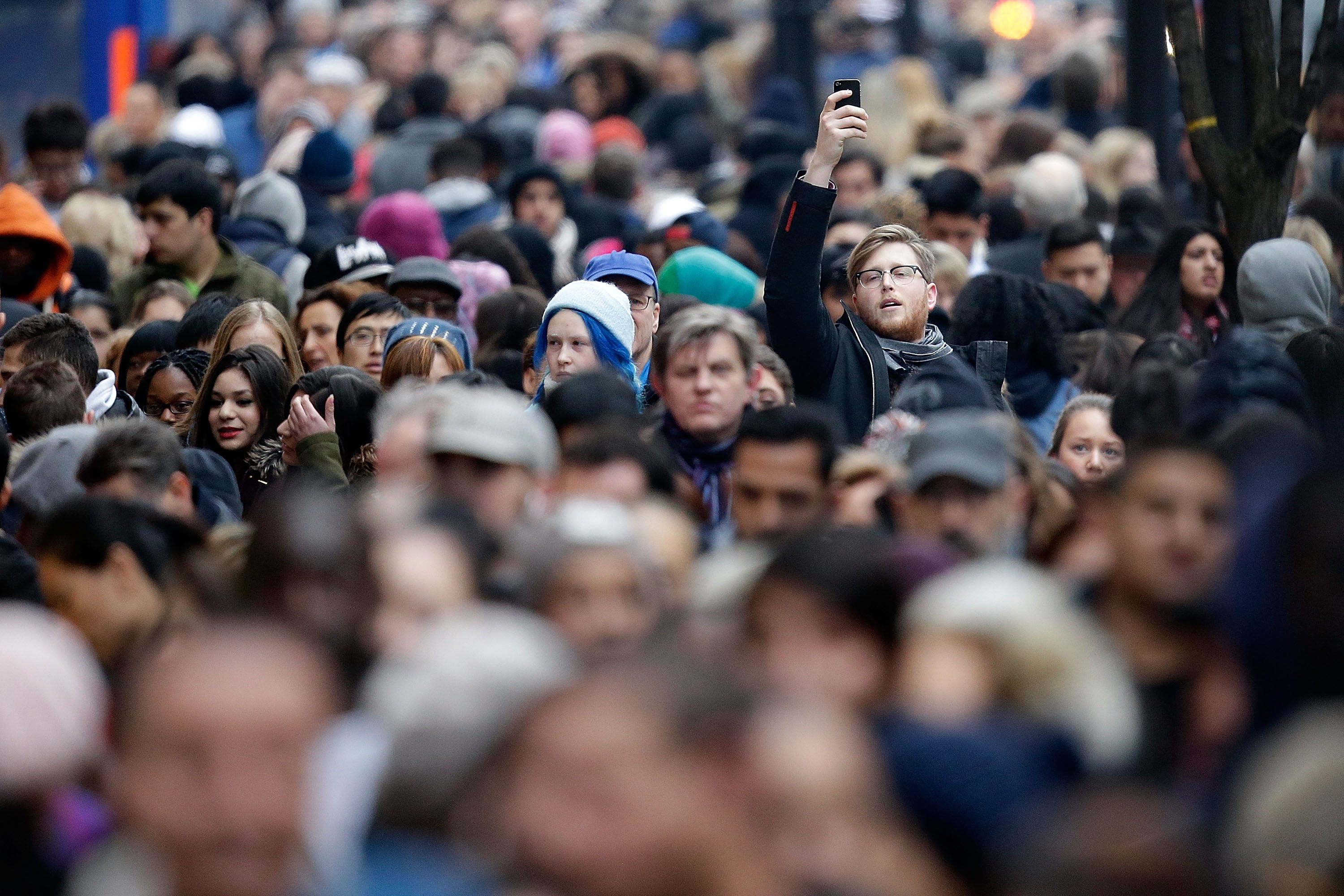Watch the world's population increase with this remarkable clock
Matthew Lloyd/Getty Images

A free daily email with the biggest news stories of the day – and the best features from TheWeek.com
You are now subscribed
Your newsletter sign-up was successful
One of the most remarkable events of modern times? Human population growth.
At the time of the First Dynasty in Egypt — around 3000 BC — global population was just 100 million, according to estimates. By the height of the Roman Empire and the birth of Christ, that number was perhaps 250 million. And in 1750, at the dawn of the industrial revolution, global population had risen to 750 million.
Now — thanks to antibiotics, improved sanitation, mechanized agriculture, vaccinations — it's 7,155 million, or 7.15 billion.
The Week
Escape your echo chamber. Get the facts behind the news, plus analysis from multiple perspectives.

Sign up for The Week's Free Newsletters
From our morning news briefing to a weekly Good News Newsletter, get the best of The Week delivered directly to your inbox.
From our morning news briefing to a weekly Good News Newsletter, get the best of The Week delivered directly to your inbox.
Current estimates suggest that global population will top out at 8.5 billion in 2030. The growth rate is already falling, due to women having less children. In 2012, the global fertility rate was 2.47 births per woman. That was a decrease from 2.50 in 2011, and 2.90 in 2006. The rate at which population growth will level off is 2.10, according to projections.
Of course, 8.5 billion people is still a huge number for the planet to support in the long run. Can the Earth do it? Some estimates say no, and some estimates say yes. Personally, I'd say a lot depends on technology. If humans can figure out a way to keep atmospheric dioxide levels close to pre-industrial levels, and transition to renewable energy to avoid over-reliance on finite resources like oil and goal, then we have a pretty good chance.
A free daily email with the biggest news stories of the day – and the best features from TheWeek.com
John Aziz is the economics and business correspondent at TheWeek.com. He is also an associate editor at Pieria.co.uk. Previously his work has appeared on Business Insider, Zero Hedge, and Noahpinion.
-
 The Olympic timekeepers keeping the Games on track
The Olympic timekeepers keeping the Games on trackUnder the Radar Swiss watchmaking giant Omega has been at the finish line of every Olympic Games for nearly 100 years
-
 Will increasing tensions with Iran boil over into war?
Will increasing tensions with Iran boil over into war?Today’s Big Question President Donald Trump has recently been threatening the country
-
 Corruption: The spy sheikh and the president
Corruption: The spy sheikh and the presidentFeature Trump is at the center of another scandal
-
 Nobody seems surprised Wagner's Prigozhin died under suspicious circumstances
Nobody seems surprised Wagner's Prigozhin died under suspicious circumstancesSpeed Read
-
 Western mountain climbers allegedly left Pakistani porter to die on K2
Western mountain climbers allegedly left Pakistani porter to die on K2Speed Read
-
 'Circular saw blades' divide controversial Rio Grande buoys installed by Texas governor
'Circular saw blades' divide controversial Rio Grande buoys installed by Texas governorSpeed Read
-
 Los Angeles city workers stage 1-day walkout over labor conditions
Los Angeles city workers stage 1-day walkout over labor conditionsSpeed Read
-
 Mega Millions jackpot climbs to an estimated $1.55 billion
Mega Millions jackpot climbs to an estimated $1.55 billionSpeed Read
-
 Bangladesh dealing with worst dengue fever outbreak on record
Bangladesh dealing with worst dengue fever outbreak on recordSpeed Read
-
 Glacial outburst flooding in Juneau destroys homes
Glacial outburst flooding in Juneau destroys homesSpeed Read
-
 Scotland seeking 'monster hunters' to search for fabled Loch Ness creature
Scotland seeking 'monster hunters' to search for fabled Loch Ness creatureSpeed Read